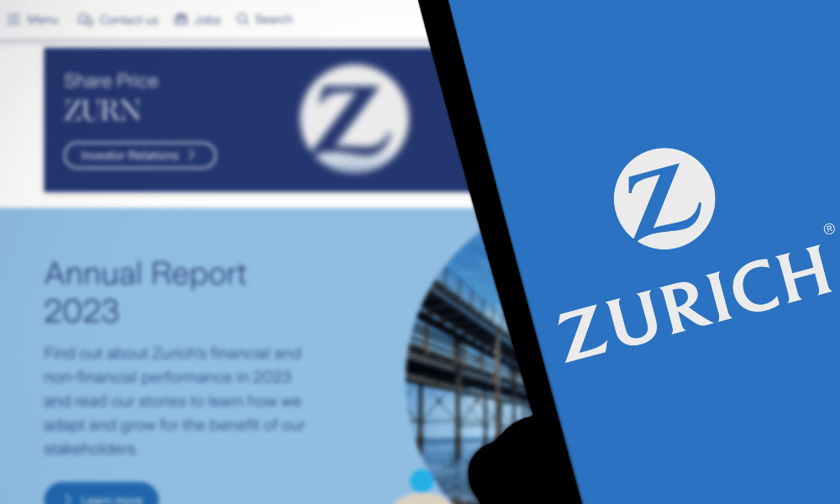

Zurich Insurance Group has invested into Europe’s digital insurance growth by backing Ominimo, a fast-rising car insurance startup founded in Serbia and headquartered in Hungary. The Swiss insurance heavyweight has acquired a minority stake in the fledgling firm, valuing it at €200 million, in what could prove a bellwether for how established players partner with new tech to stay competitive in an evolving market.
Though neither side disclosed the financial details, reports indicate Zurich has invested €10 million for a 5% equity share. The partnership goes beyond capital. Zurich’s German arm, DA Direkt, has inked a distribution deal with Ominimo to jointly roll out motor insurance products to consumers across Europe, beginning with Poland this spring.
For Zurich, the move reflects a broader strategic push to deepen its footprint in the retail segment and harness digital innovation to deliver growth. “Growing our retail business profitably is a key ambition in Zurich’s 2025–2027 cycle,” said Alison Martin, CEO for Europe, the Middle East and Africa. “That is why I am delighted with DA Direkt’s distribution partnership with Ominimo, which will allow us to offer innovative motor insurance solutions and expand our retail customer base in Europe, beyond the markets in which Zurich is already present.”
Ominimo’s founding tale is one of frustration turned opportunity. Chief executive Dusan Komar, formerly a consultant at McKinsey, saw up close the inefficiencies that plague incumbent insurers: unwieldy legacy systems, sluggish decision-making, and a talent pool reluctant to work in such uninspiring environments.
“No brilliant software engineer or data scientist dreams of working for an insurance company,” Komar remarked with disarming candour.
So, together with co-founders Dennis Weinbender and Laslo Horvath, he decided to flip the script. The trio established Ominimo with a clear proposition: combine competitive compensation with intellectual freedom, enabling top-tier tech minds to rebuild insurance from the ground up. Their approach is yielding results. In its first year of operation in Hungary, Ominimo sold over 300,000 policies, securing 7% of the market and turning a profit — a rarity among startups.
What sets Ominimo apart, Komar says, is the rigour of its data science. Traditional insurers might rely on a half-dozen factors to price risk; Ominimo pulls hundreds of variables, from vehicle dimensions to urban density, using machine learning to refine risk models in real time.
“It’s interesting, for instance, to see that data shows a very strong correlation between the length of the car and the frequency of accidents during parking,” he noted, illustrating the kind of granular analysis his team champions.
The company boasts a data science team that includes eight medallists from international maths and physics Olympiads — talent more commonly lured by big tech or quantitative hedge funds. “These are really brilliant young minds who now, for the first time, get to deploy their full potential on a global scale. And this really shows in the KPIs that we see,” Komar said.
Having proven its model in Hungary, Ominimo now has its sights set on broader European ambitions. It will launch operations in Sweden and the Netherlands after Poland, with plans to be active in more than ten countries over the coming years. The firm operates as a managing general agent (MGA), selling policies underwritten by Zurich, which allows it to retain control over product and customer experience while leveraging Zurich’s capital and regulatory infrastructure.
Zurich, for its part, views this and similar partnerships as integral to its new strategic plan, which includes hitting a core return on equity above 23% and delivering $19 billion in cash remittances by 2027. Beyond Ominimo, it has recently backed UK-based benefits platform Onsi and Canadian cybersecurity insurer BOXX, reflecting a growing appetite for digital-native ventures that address emerging risks and distribution models.
“We see our partnership with Ominimo as an ideal combination for realising this potential with tailored offers for a wider customer base,” said DA Direkt’s CEO, Peter Stockhorst.
The timing of Ominimo’s ascent is notable. Across the insurtech landscape, many earlier high-fliers are floundering. WeFox, once considered the crown jewel of European insurtech, is now offloading assets to stay afloat. Komar is mindful of the pitfalls of hyper-growth.
“There is a difference between claiming to do data science in terms of risk assessment, and actually doing it,” he said, dismissing rivals focused more on slick user interfaces than actuarial rigour. “I think what really matters is actually performance in the market.”
Whether Ominimo can scale its method across multiple territories — each with different regulatory quirks and driving cultures — remains to be seen. But in partnering with Zurich, it has secured not only deep pockets but a powerful stamp of credibility.
And for Zurich, betting on a Serbian entrepreneur’s AI-powered motor insurer may prove a shrewd way to drive profitable growth in the digital age.
